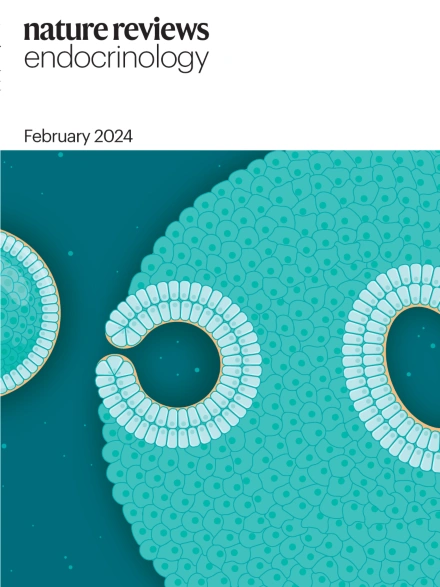HDL metabolism and function in diabetes mellitus.
IF 40
1区 医学
Q1 ENDOCRINOLOGY & METABOLISM
引用次数: 0
Abstract
Epidemiological studies have identified an inverse association of high-density lipoprotein (HDL) cholesterol with cardiovascular risk. Preclinical studies have shown that HDLs also exhibit cardioprotective functions in cultured cells and animal models. However, large, randomized, placebo-controlled clinical trials of HDL-raising agents have failed to reduce cardiovascular events in humans. Despite this negative outcome, glycaemic control was considerably improved in the patients with type 2 diabetes mellitus who were recruited into these trials. This finding indicated that HDLs might have anti-diabetic functions. This was shown to be the case in cell studies and animal studies, which have established that HDLs and apolipoprotein A1, the main HDL apolipoprotein, improve pancreatic β-cell function and increase insulin sensitivity. On the other hand, diabetes mellitus adversely affects the structure, anti-diabetic functions and cardioprotective functions of HDLs. These complex, closely linked relationships, which are undoubtedly worthy of further investigation, form the focus of this Review.糖尿病患者HDL代谢与功能。
流行病学研究已经确定高密度脂蛋白(HDL)胆固醇与心血管风险呈负相关。临床前研究表明,hdl在培养细胞和动物模型中也表现出心脏保护功能。然而,高密度脂蛋白升高剂的大型、随机、安慰剂对照临床试验未能减少人类心血管事件。尽管出现了这样的负面结果,但参与这些试验的2型糖尿病患者的血糖控制得到了显著改善。这一发现表明hdl可能具有抗糖尿病功能。这在细胞研究和动物研究中得到了证实,这些研究已经证实HDL和载脂蛋白A1(主要的HDL载脂蛋白)可以改善胰腺β细胞的功能并增加胰岛素敏感性。另一方面,糖尿病对hdl的结构、抗糖尿病功能和心脏保护功能产生不利影响。这些复杂而密切相关的关系无疑值得进一步研究,是本审查的重点。
本文章由计算机程序翻译,如有差异,请以英文原文为准。
求助全文
约1分钟内获得全文
求助全文
来源期刊

Nature Reviews Endocrinology
医学-内分泌学与代谢
CiteScore
42.00
自引率
0.70%
发文量
158
审稿时长
6-12 weeks
期刊介绍:
Nature Reviews Endocrinology aspires to be the foremost platform for reviews and commentaries catering to the scientific communities it serves. The journal aims to publish articles characterized by authority, accessibility, and clarity, enhanced with easily understandable figures, tables, and other visual aids. The goal is to offer an unparalleled service to authors, referees, and readers, striving to maximize the usefulness and impact of each article. Nature Reviews Endocrinology publishes Research Highlights, Comments, News & Views, Reviews, Consensus Statements, and Perspectives relevant to researchers and clinicians in the fields of endocrinology and metabolism. Its broad scope ensures that the work it publishes reaches the widest possible audience.
 求助内容:
求助内容: 应助结果提醒方式:
应助结果提醒方式:


